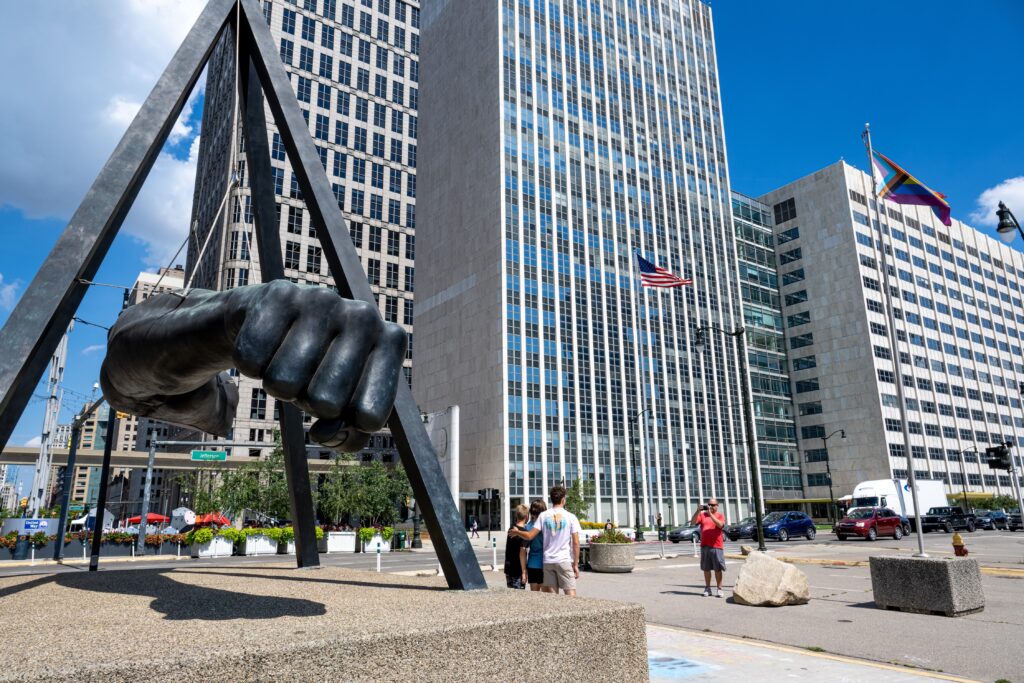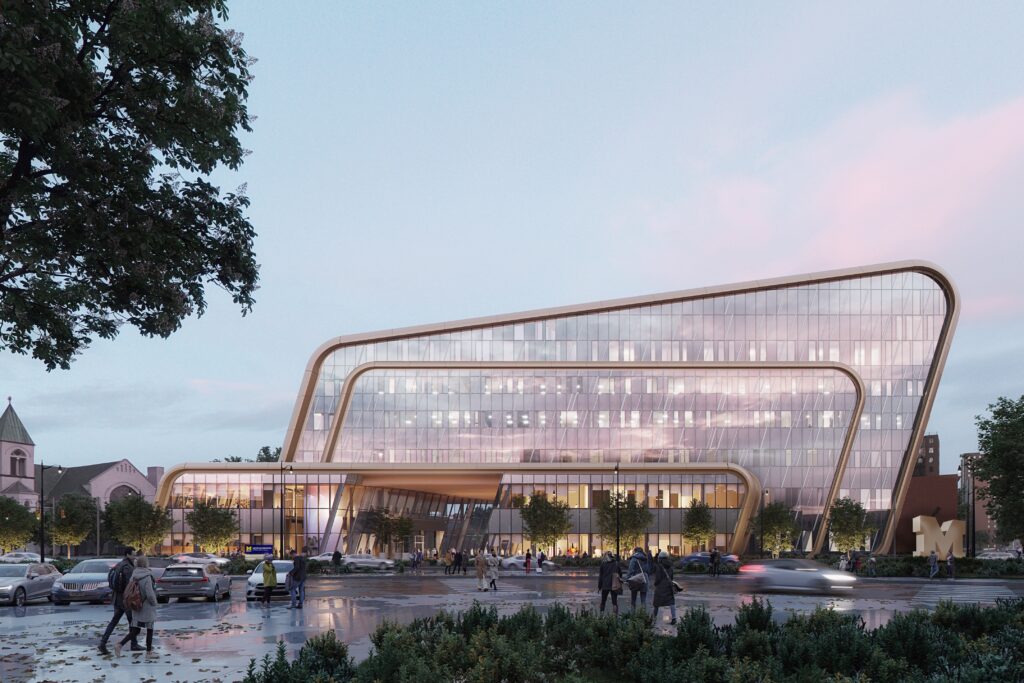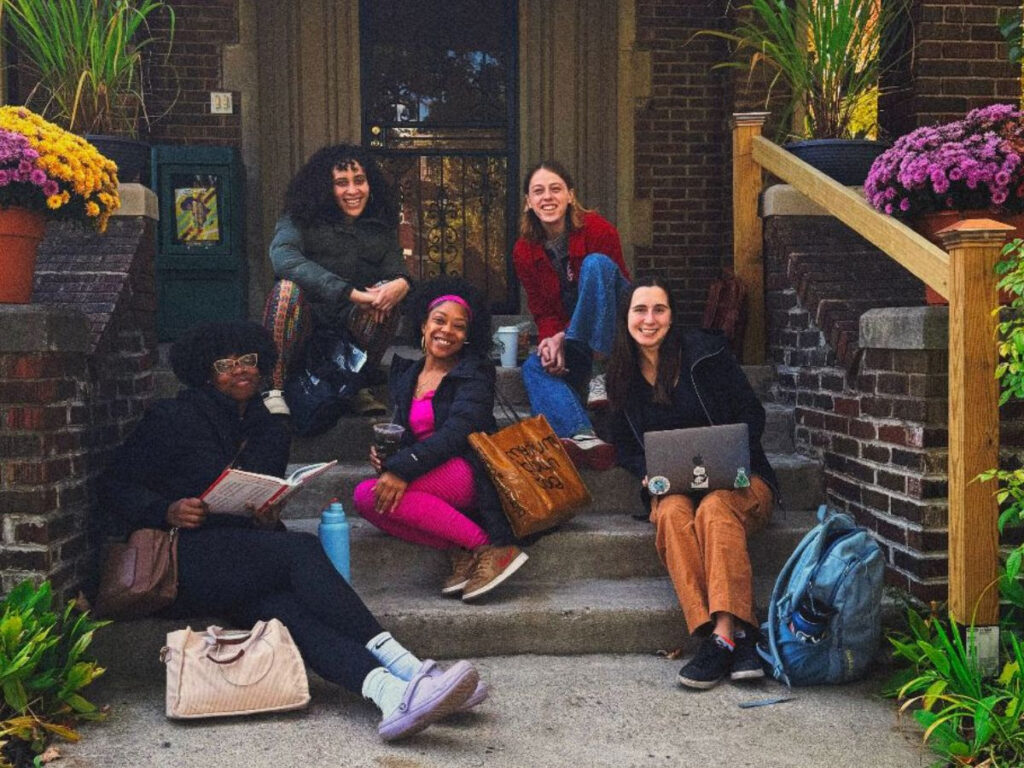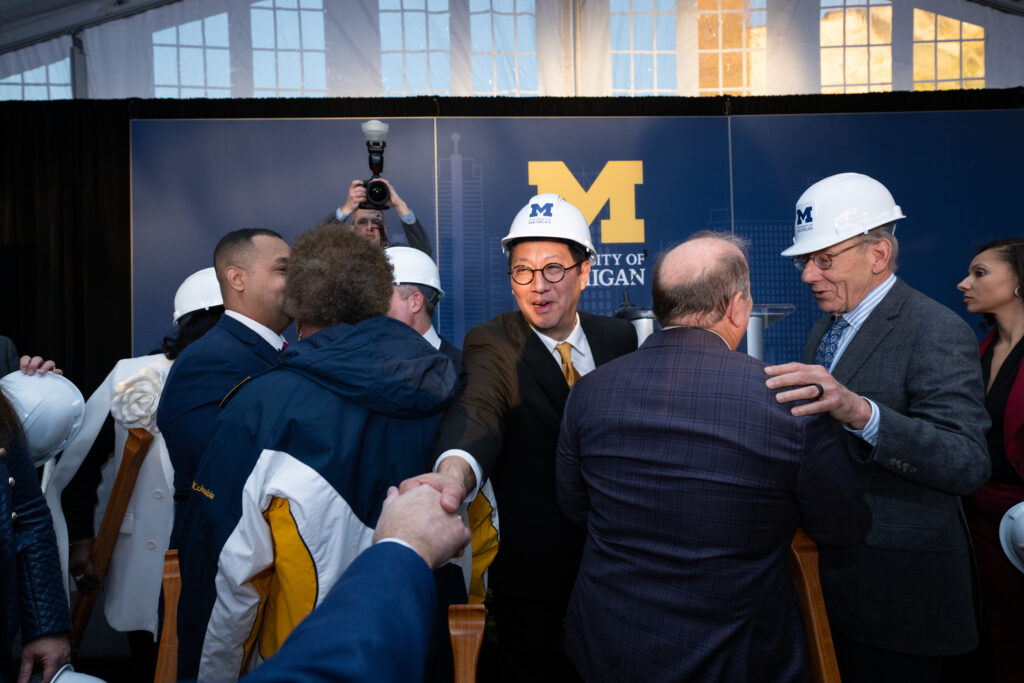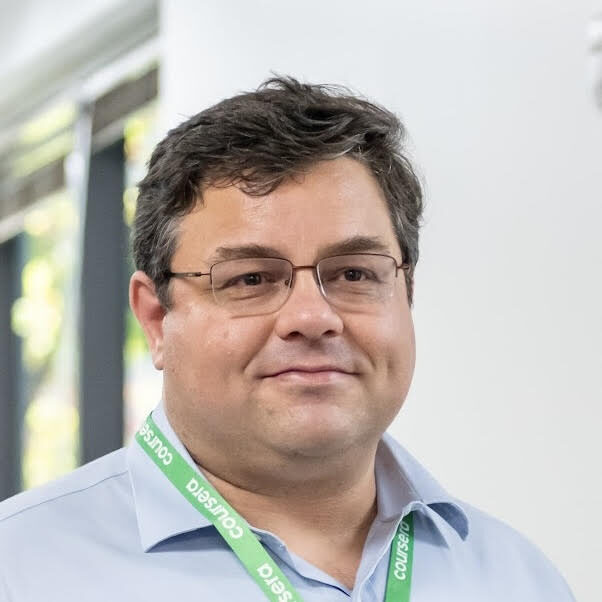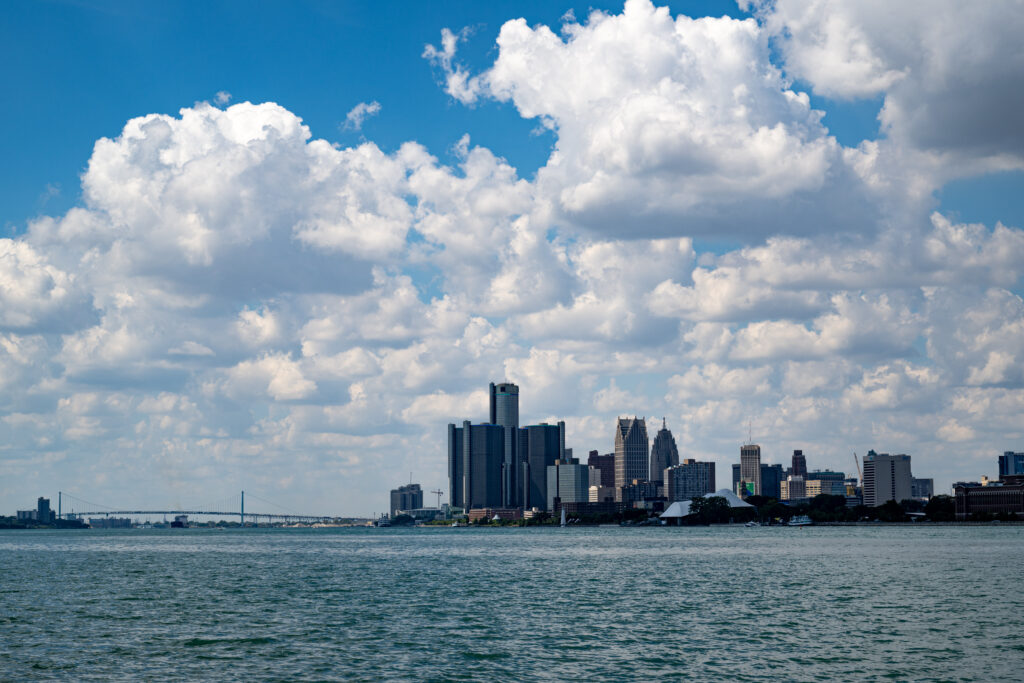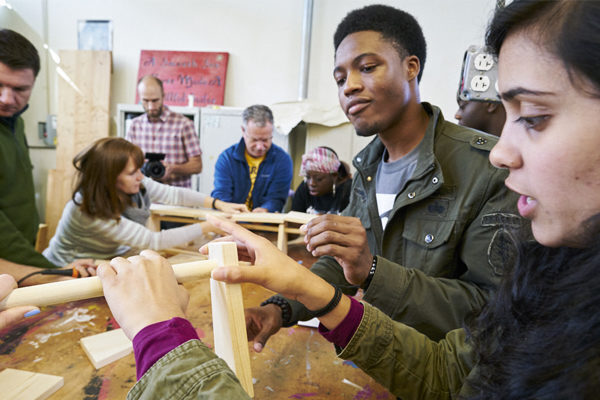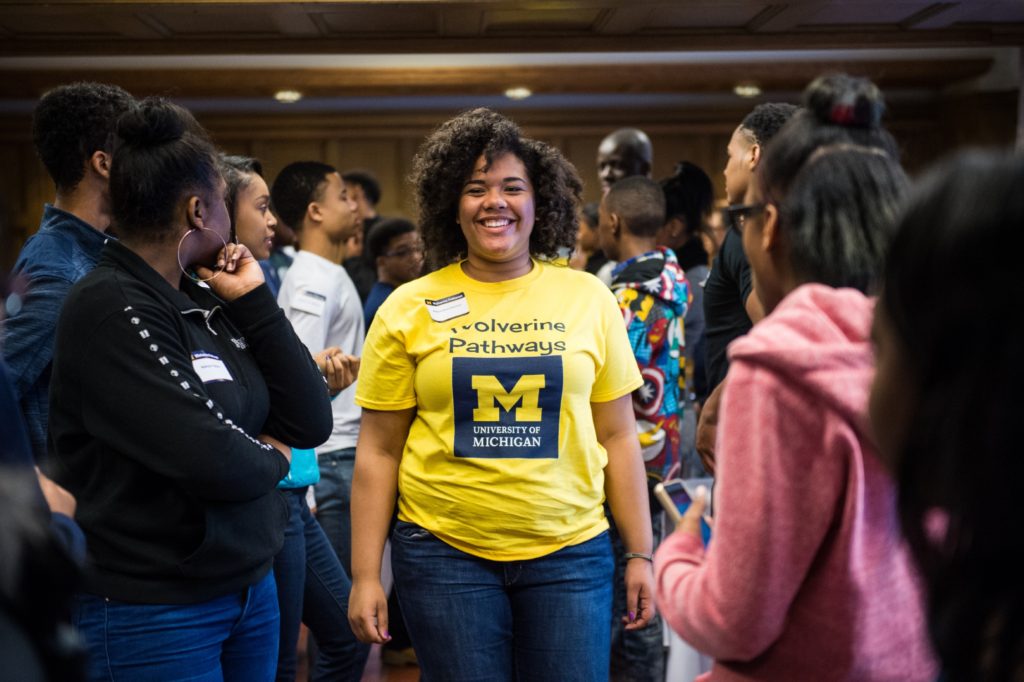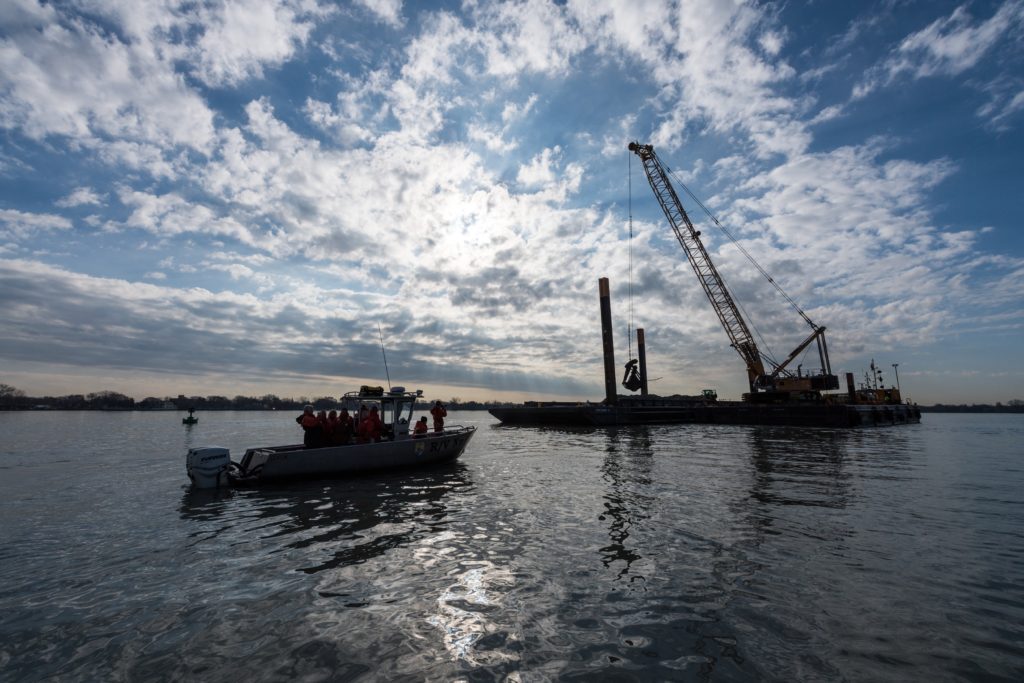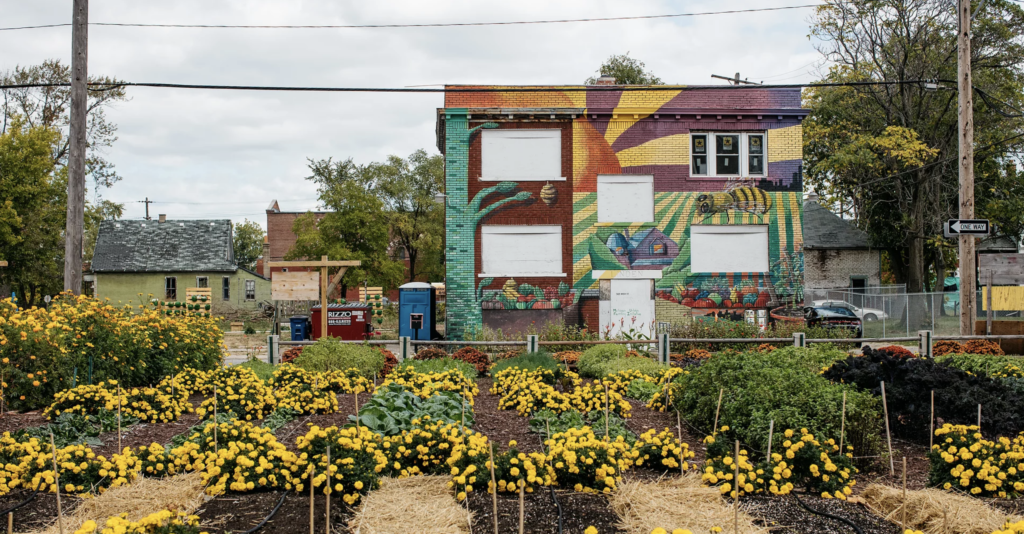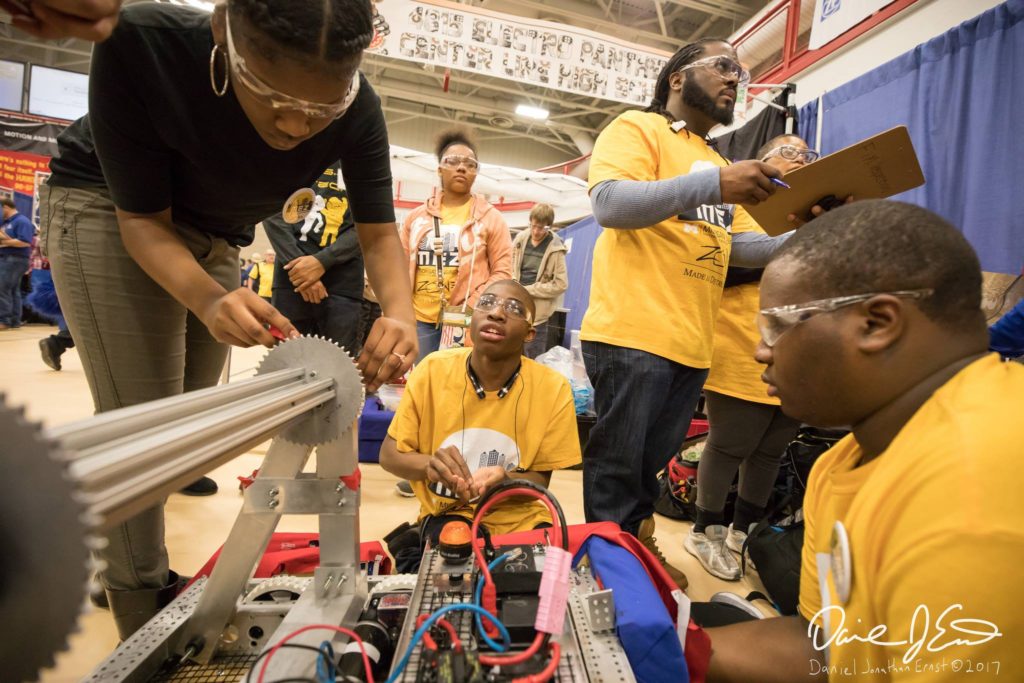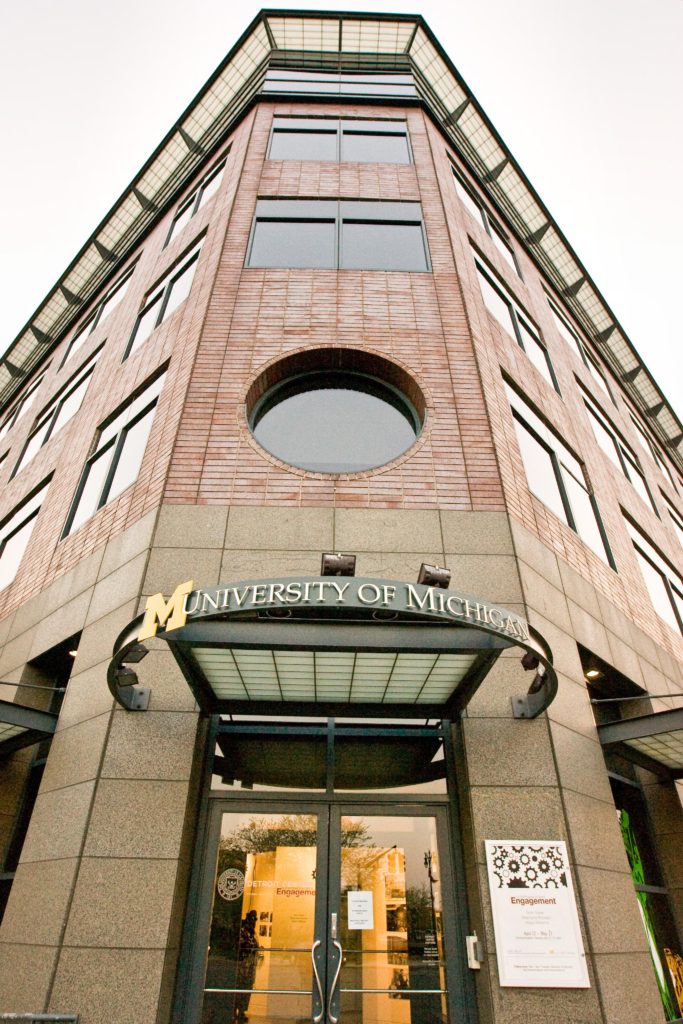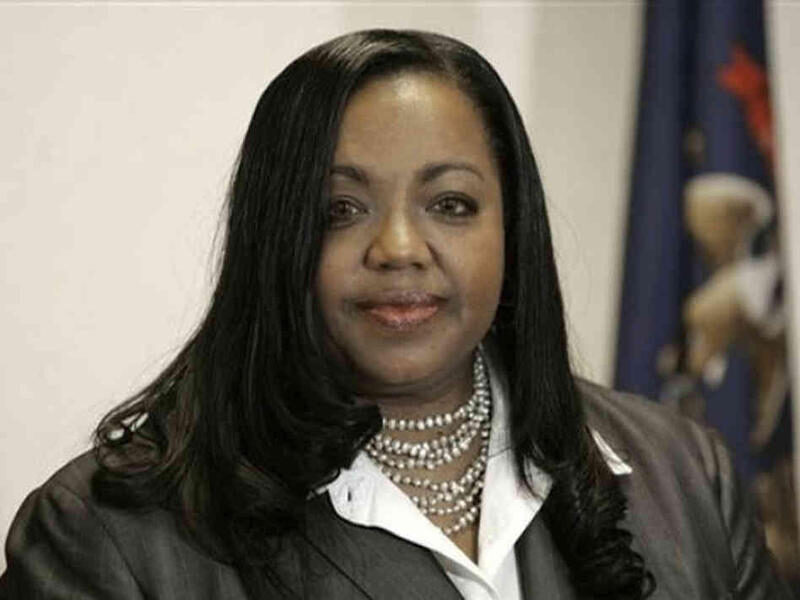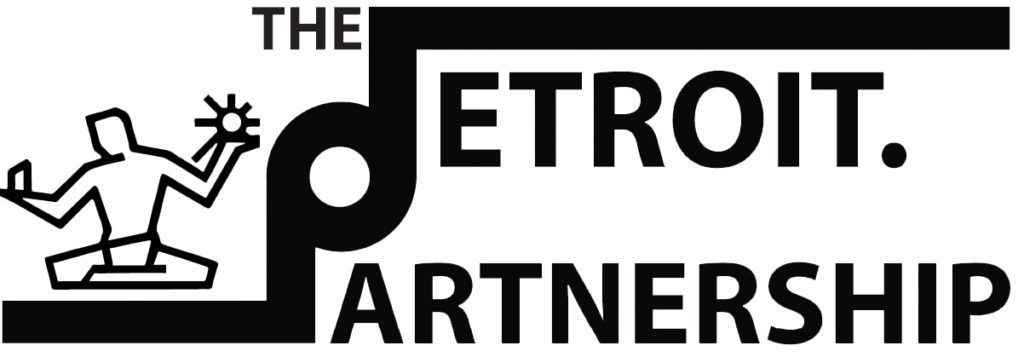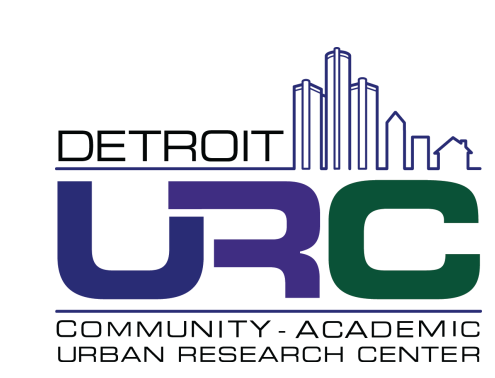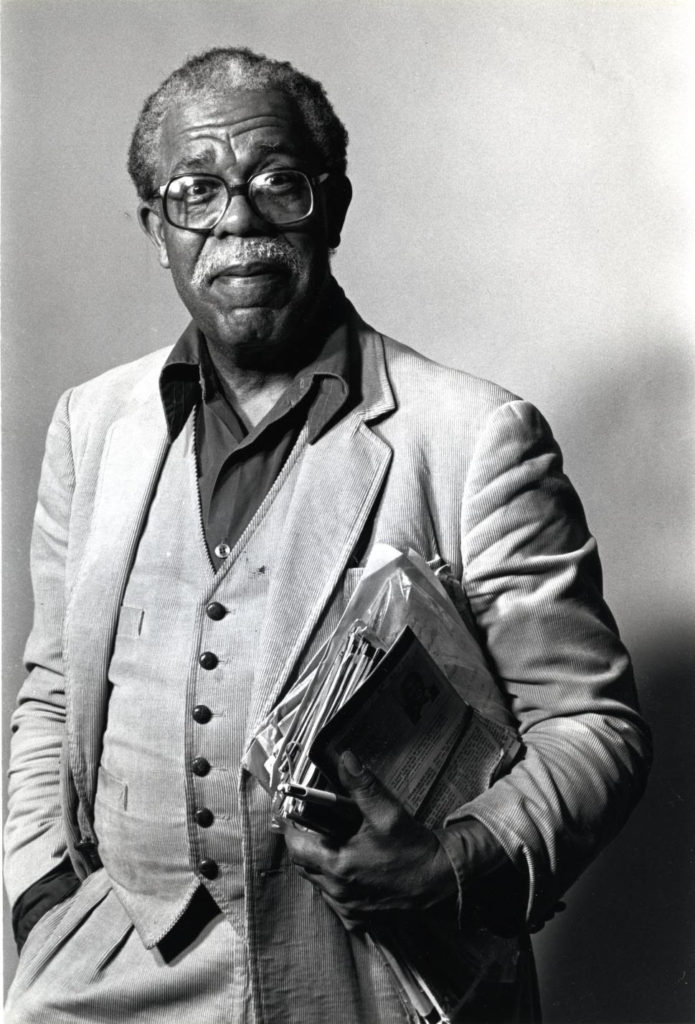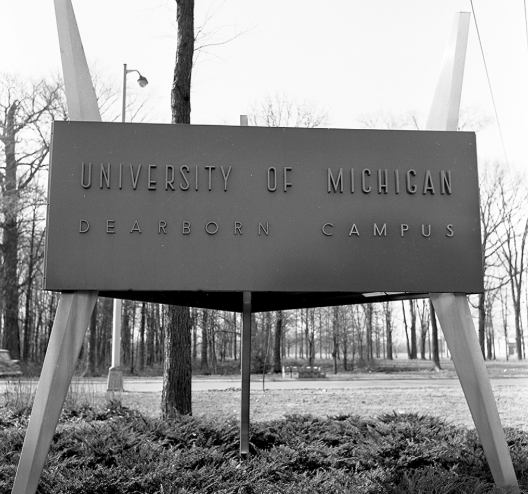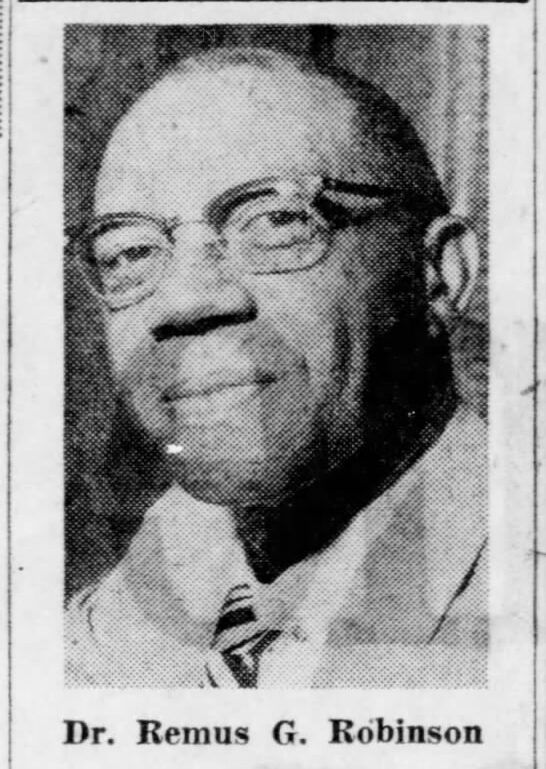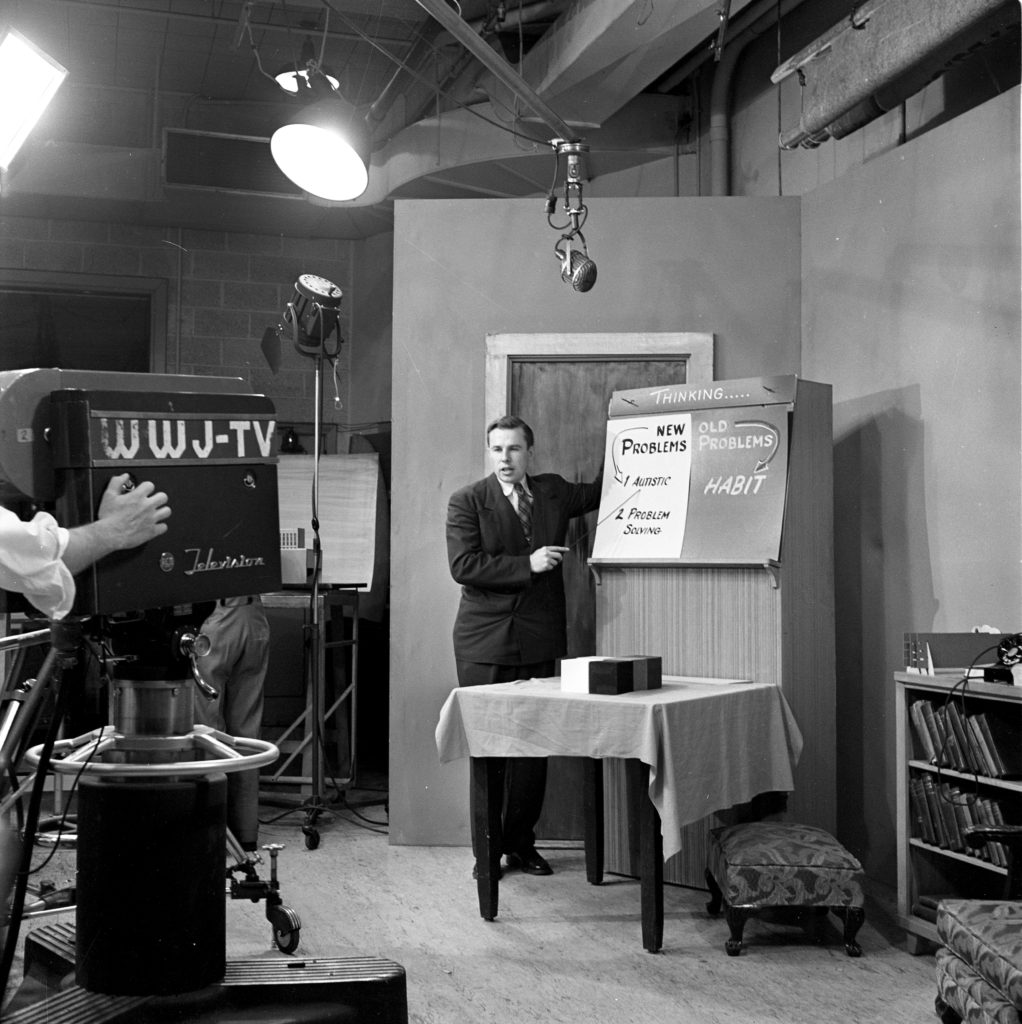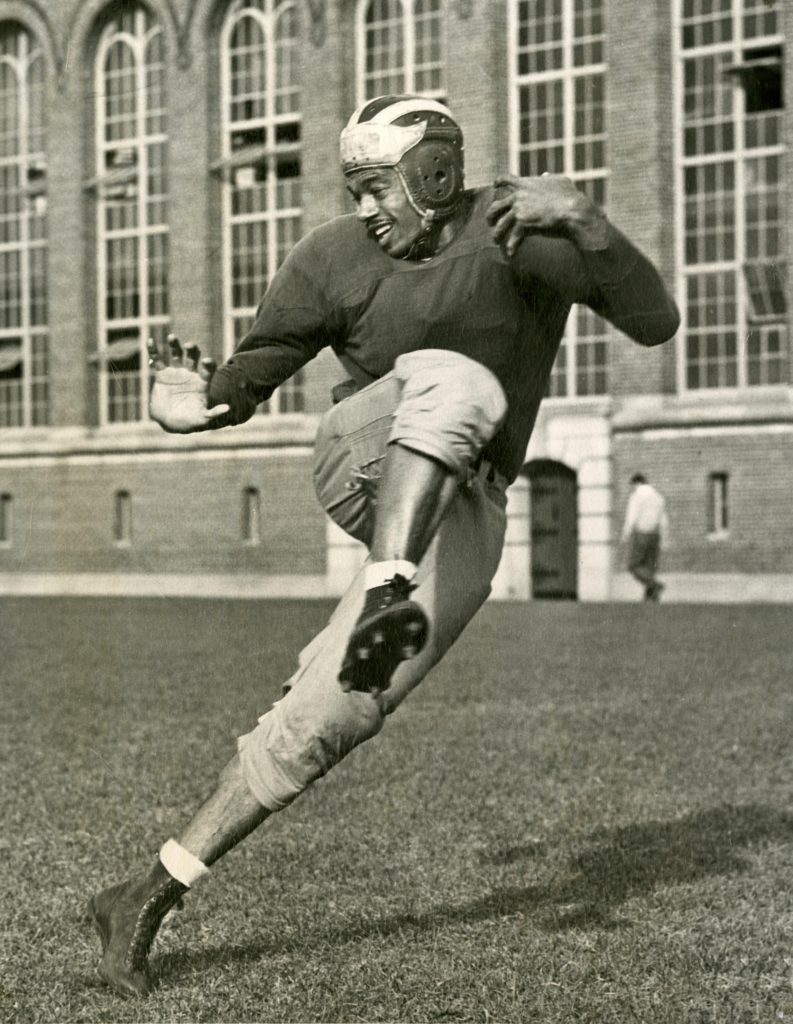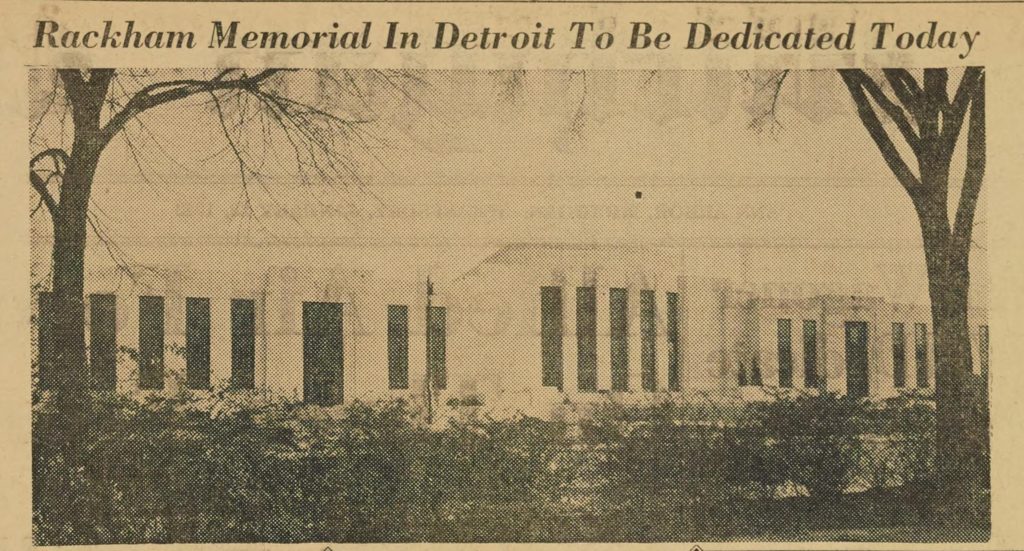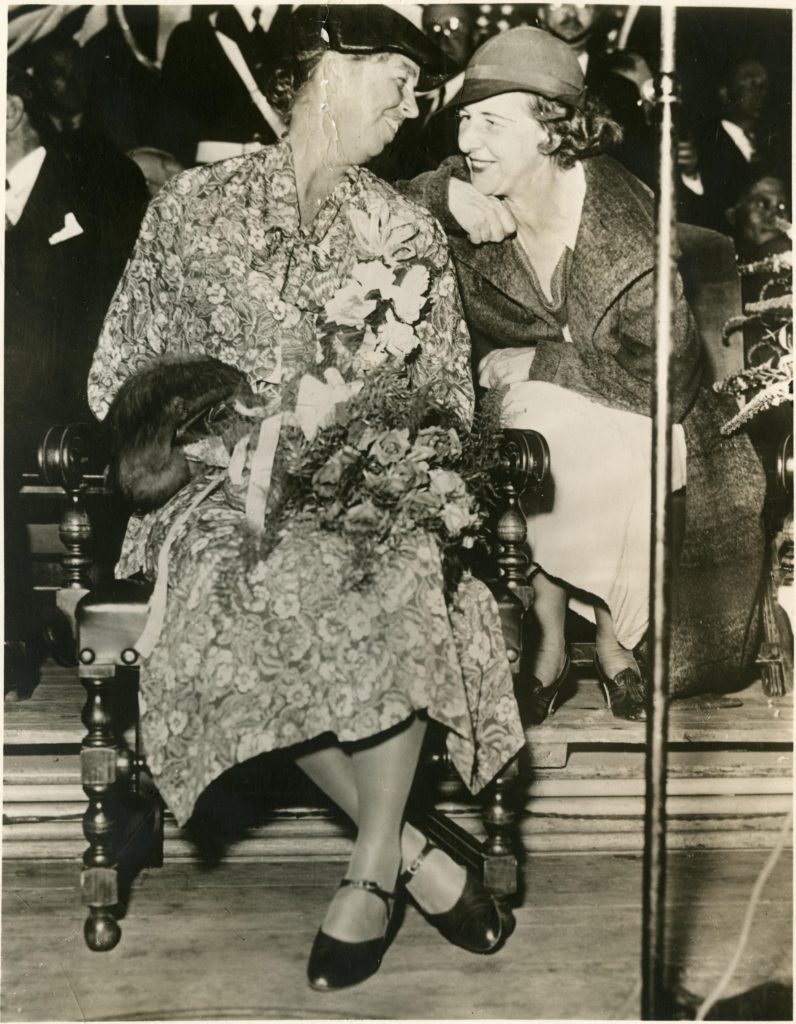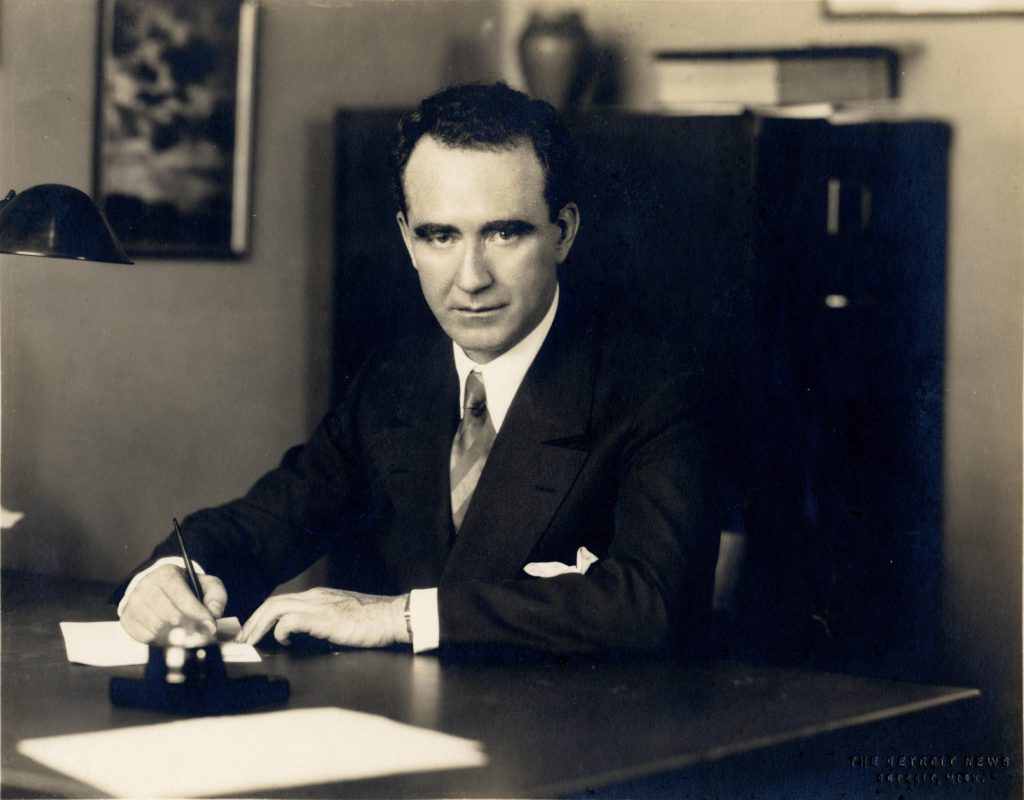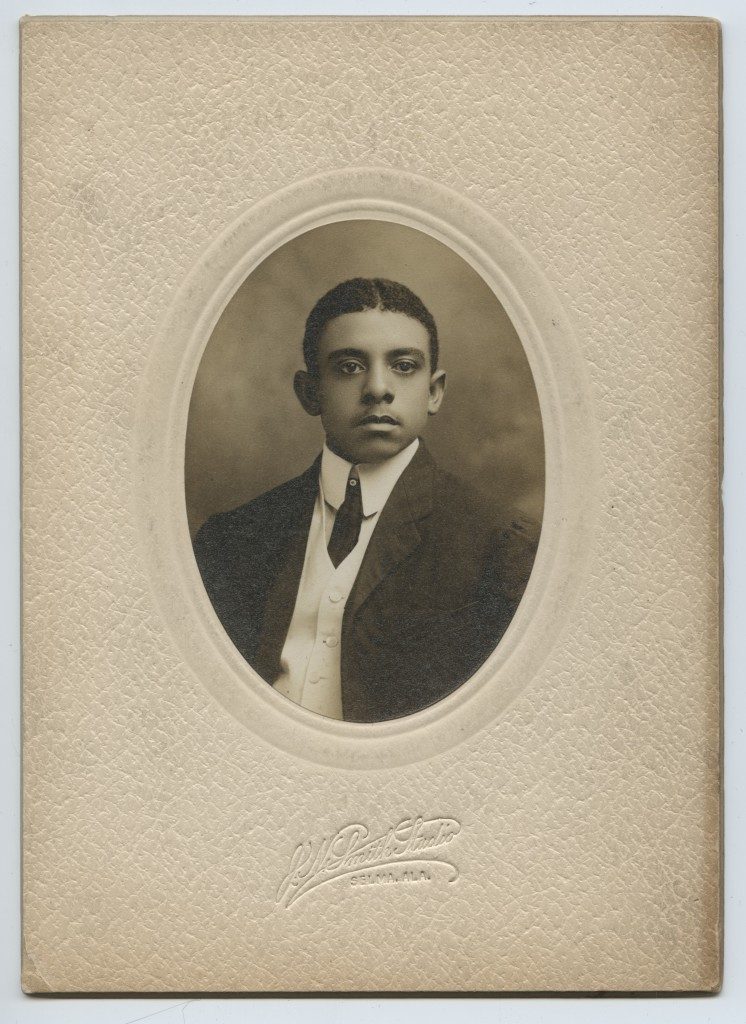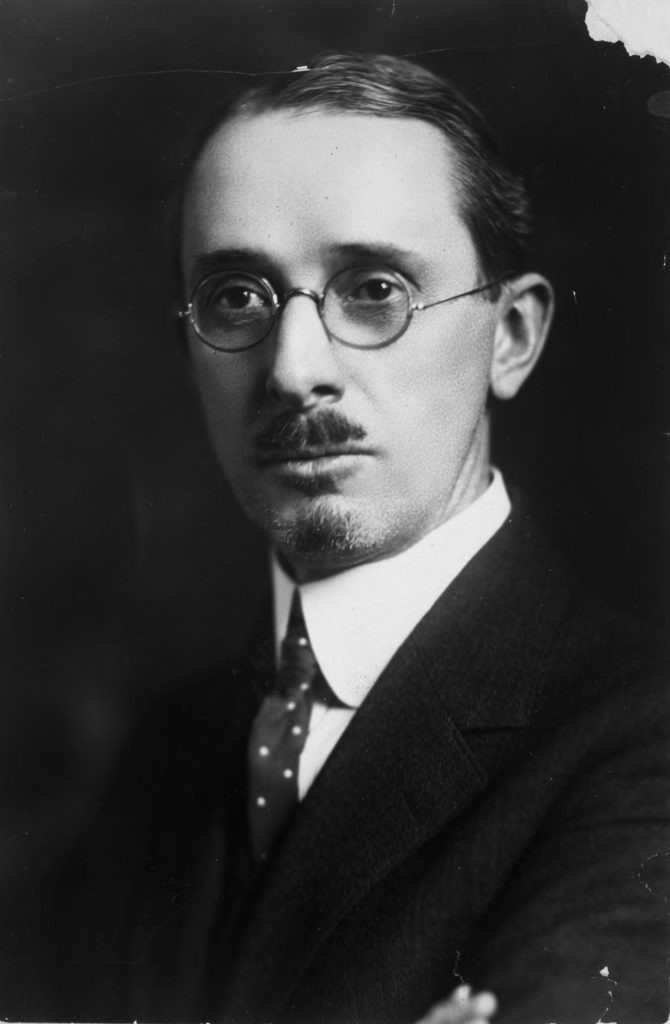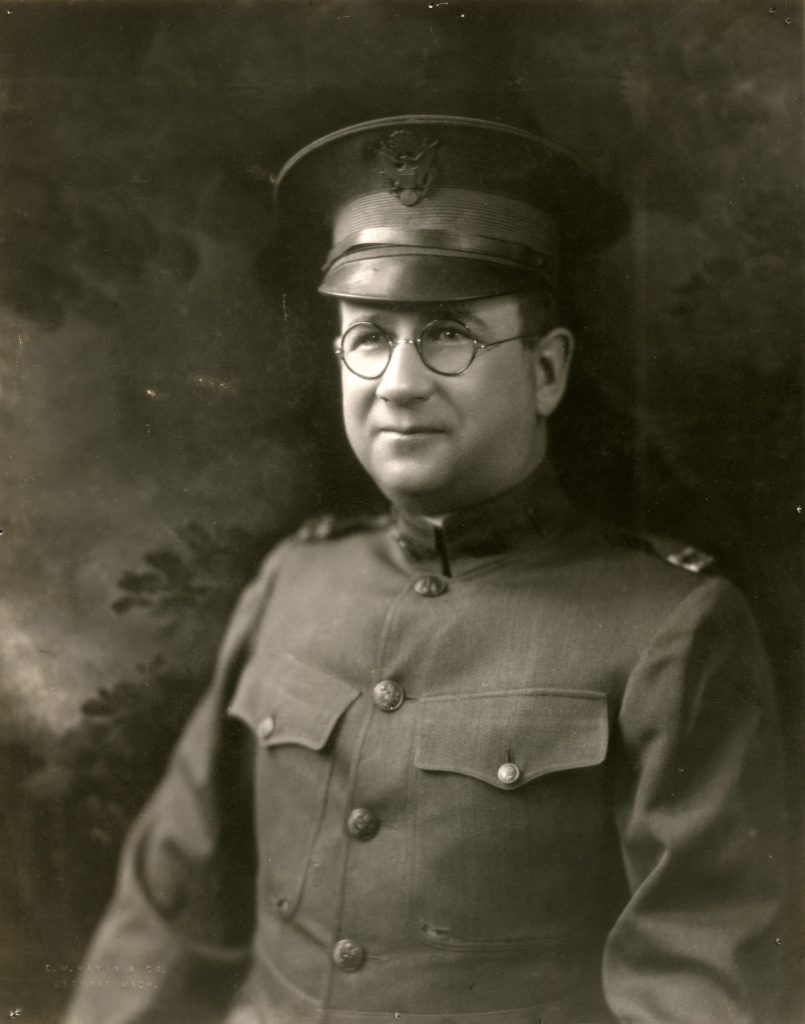Detroit is the birthplace of the University of Michigan where it was founded 1817 as the Catholepistemiad or University of Michigania. At that time, Detroit was the capital of the Michigan Territory. In 1837, the Michigan Territory became the State of Michigan, and the University of Michigan moved to Ann Arbor in the original 40-acre parcel that is our current Diag. U-M has maintained connections to the City of Detroit and its residents ever since.
U-M Detroit Timeline
Detroit’s payroll jobs and the number of employed residents are expected to continue to climb during the next few years along with sustained real wage growth, according to University of Michigan economists.
A partnership between the University of Michigan and the city of Detroit, the 2024 Saturdays in the D program provides free access to high-quality learning experiences for Detroit middle school and high school students, as well as professional development opportunities for adult residents.
The Board of Regents has approved the schematic design for the University of Michigan Center for Innovation in Detroit, a six-story building expected to open in spring 2027.
“Slower national economic growth in 2024 poses risks to the local economy, but we expect Detroit’s economy to display encouraging resilience in the face of a challenging external environment,” said Gabriel Ehrlich, study co-author and director of the Research Seminar in Quantitative Economics at U-M.
The Semester in Detroit program, conceived originally by U-M students and launched in 2009, brings undergraduate students from the Ann Arbor, Dearborn, and Flint campuses together at the University of Michigan’s Detroit Center. The program has also included students from Grand Valley State University since 2016.
“Today’s groundbreaking is far more than the promise of a new building. It is a profound expression of our sustained and lasting commitment to the city of Detroit, and of our faith in a shining future for the state of Michigan,” said U-M President Santa J. Ono. “It’s a proud moment for all of us.”
Students who participated in the six-week pilot “Saturdays in the D” Summer Camp and Adult Skills Enrichment Experience graduated Saturday with a course certificate. The city of Detroit, Detroit Public Schools Community District, University of Michigan Center for Academic Innovation, Ally Financial and the Song Foundation partnered to offer the program this summer after a three-year COVID delay.
More than a dozen projects awarded with Engage Detroit Workshops grants in 2022 and 2023 were shared Friday at the U-M Detroit Center.
The University of Michigan has unveiled a series of new commitments to the city of Detroit including details of the university’s role in leading the design and construction of the renamed University of Michigan Center for Innovation.
Provost Laurie McCauley has named an advisory committee to assist in the search for an inaugural director of the new University of Michigan Center for Innovation in Detroit.
The Board of Regents voted to create the new position of director for a planned world-class research and education center in Detroit. The center was renamed the University of Michigan Center for Innovation.
Michigan lawmakers approved a 2022-23 state budget that includes $100 million for the Detroit Center for Innovation.
Plans for the Detroit Center for Innovation continue to take shape, with officials announcing the center will now be built in The District Detroit, situated between downtown and Midtown. The 200,000-square-foot, U-M-run center will focus on academic programs and research related to advanced technology fields. It will be seeded by a $100 million donation by alumnus Stephen M. Ross, chairman of Related Companies, and a land contribution by Olympia Development. The city of Detroit is also a partner in the project.
The Board of Regents approved a $40 million renovation plan for the Horace H. Rackham Educational Memorial Building in Midtown that includes classroom updates, energy efficient upgrades and major infrastructure improvements.
The School for Environment and Sustainability launched the SEAS Sustainability Clinic, which aims to help the city of Detroit and the nonprofits that serve it address the impacts of climate change on the environment, human health and city finances, while working to enhance sustainability policy and action.
The Michigan Institute for Data Science at U-M partnered with Microsoft and the city of Detroit to expand digital equality by improving broadband internet access and affordability in underserved areas across the Motor City.
The multiyear Detroit River Story Lab at U-M launched with grant-funded partnerships and multidisciplinary courses devoted to the international waterway. The project sets out to develop creative ways to leverage the resources of the university community to help research and amplify stories of the Detroit River. Link:
A U-M faculty curriculum development committee begins meeting to work on creating new forms of degree and certificate programs that will be available at the Detroit Center for Innovation. Link:
Officials announce plans for the Detroit Center for Innovation, a 14-acre center in downtown Detroit anchored by U-M that will focus on sparking entrepreneurial activity, educating students and further diversifying the local economy. Partners in the project include the state of Michigan, city of Detroit and Wayne County; Related Companies, Stephen M. Ross’ development firm; and Bedrock, Dan Gilbert’s full-service real estate firm.
U-M partners with the Detroit Public Schools Community District and others to launch the School at Marygrove, a cradle-to-career educational partnership that will include a state-of-the-art early childhood education center, a new K-12 school, and the introduction of an innovative teacher education program modeled after hospital residency programs.
The Partnership on Economic Mobility is established between U-M’s Poverty Solutions initiative and the City of Detroit to identify and implement strategies that improve economic opportunity and reduce poverty in Detroit.
Wolverine Pathways — a college readiness program for 7th- to 12th-grade students that launched in Ypsilanti and Southfield in 2016 — expands to Detroit and awards full-tuition scholarships for four years to students who successfully complete the program and earn admission to U-M.
The Board of Regents votes to acquire full ownership of the Horace H. Rackham Educational Memorial Building on Farnsworth Street, intended to become a vibrant space for U-M and community activities in Detroit.
U-M launches Poverty Solutions, an initiative to explore and test models to ease the effects of poverty and broadly share that knowledge. Much of this work takes place in partnership with Detroit residents and organizations.
The Lightweight Innovations for Tomorrow (LIFT) Consortium opens in Detroit’s Corktown neighborhood, with U-M a key partner in the public-private manufacturing insitute. The institute is charged with establishing a regional manufacturing ecosystem to move cutting-edge lightweight metals out of the research lab and into tomorrow’s cars, trucks, airplanes, and ships for both the commercial and military sectors.
U-M students Tyson Gersh and Darin McLeskey found the Michigan Urban Farming Initiative in Detroit’s North End with the mission of using urban agriculture as a platform to promote education, sustainability, and community. With the help of more than 10,000 volunteers, MUFI has grown and distributed more than 50,000 pounds of produce to more than 2,000 households.
A student organization called the Detroit Project — later renamed the Detroit Partnership — is established by U-M students to connect with Detroit-based community partners through service-learning opportunities and on-campus events. This organization establishes DP Day, the largest service-learning day at U-M.
The university partners with Wayne State University in Detroit and Michigan State University to establish the Merit Network. The network plays a key role in the development of the internet, enabling scale-up and enhancing the interactivity of computer networks.
The University of Michigan-Dearborn opens as the Dearborn Center of the University of Michigan with a gift of just over 200 acres of land and $6.5 million from the Ford Motor Company. Early academic offerings include a cooperative education program between the company and the university for engineering and business administration students.
Graduate of U-M Medical School and chief surgeon at Detroit’s Parkside Hospital, Dr. Remus Robinson is elected to the Detroit school board and becomes its first African American member. As school board president, he fights to end de facto segregation in Detroit classrooms.
The Ambassador Bridge opens, connecting Detroit to Windsor. Detroiter Cornelius Langston Henderson, the second African American to earn a U-M engineering degree, was responsible for the structural steel design of the bridge from the Canadian side, as well as the massive steel tubes of the Detroit-Windsor Tunnel, which opened two years later.
Designed by native Detroiter and U-M’s first dean of architecture Emil Lorch, the Belle Isle bridge opens.
U-M graduate Henry Frieze Vaughan becomes Detroit’s chief public health official and leads a proactive public health program known as the Detroit Plan. The strategy helps to substantially bolster a growing Detroit’s capacity to deal with diseases such as tuberculosis, typhus, smallpox, measles, and pneumonia.
Sources of information used to compile this timeline include The University of Michigan, An Encyclopedic Survey; The Making of the University of Michigan, 1817-1992, by Howard H. Peckham; Board of Regents proceedings; contemporary newspaper accounts; and the Lemuel Shattuck papers in the Burton Historical Collection at the Detroit Public Library.


